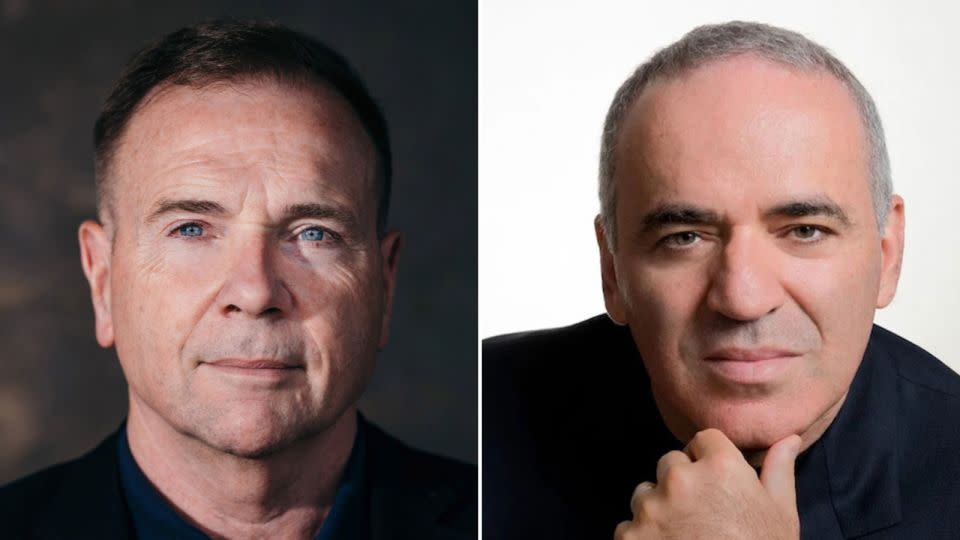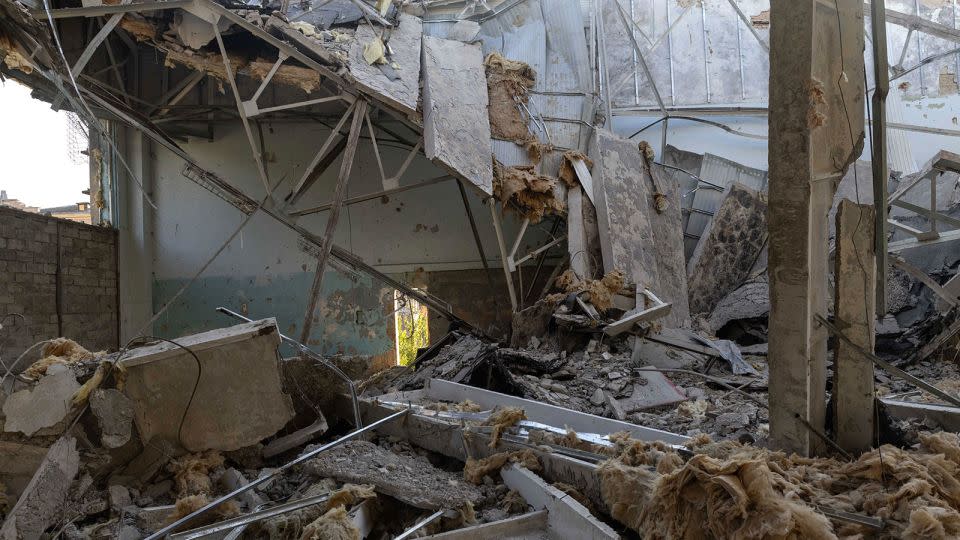Opinion: A strategy is needed now before it’s too late for Ukraine
Editor’s note: Garry Kasparov is a Russian opposition leader who founded and chairs the Renew Democracy Initiative, or RDI. Gen. Ben Hodges served as the commanding general of US Army Europe and is a member of RDI’s board of directors. The opinions expressed in this commentary are their own. View more opinion on CNN.
“Better late than never” is probably a poor operating principle for the US government. But it was in this spirit that Congress finally passed essential aid to frontline US allies in Ukraine, Israel and Taiwan after months of delay. The fight to get the nearly $61 billion aid package for Ukraine illustrates the ad hoc nature of US support for Kyiv — tactics without strategy. For all of the resources that President Joe Biden and Congress have put forward, Washington has never sincerely tried to piece them together into a cohesive plan for Ukraine.

Now that the House of Representatives has gotten its act together, we need to make up for lost time. Partisan procrastination cost the Ukrainians ground they must now recoup.
We need to ensure that the funds Washington has laid out for Ukraine are translated into the right tools —delivered to the right places at the right time. And we need to shore up flagging domestic support for Ukraine among key Republican constituencies so that this aid package isn’t the last.
Above all, the president must distill the case for Ukraine into a digestible endgame. Many Americans have been understandably skeptical given the prospect of open-ended war, and the Biden administration’s well-intentioned but clumsy framing of aiding Ukraine “for as long as it takes” hasn’t helped. Instead, Biden should outline specific US goals: Ukrainian victory — and, with it, Russian defeat.
The president should not waver on this point. He must repeatedly and consistently remind Americans why both Ukrainian victory and Russian defeat are in our strategic interest and how we are going to do everything needed to achieve these strategic outcomes. Our combined political and military experience gives us unique insight into what this game plan should look like.
While lawmakers haggled over Biden’s foreign aid bill, Ukraine suffered setbacks. The Russians are closing in around Kharkiv, the country’s second-largest city, while making modest gains past the town of Avdiivka near the front lines in the east.
Ukraine’s position is grave, but if Kyiv and its American and European allies act decisively now, Ukraine can still win — and this means besting Russia on the battlefield.
In practice, it means providing Ukraine the ability to not only defend itself but also to proactively deny Russia the ability to attack. The United States and its allies must hasten the delivery of F-16s and other fixed-wing aircraft while ramping up training for Ukrainian pilots. These planes can help defend the skies over eastern and southern cities such as Kharkiv and Odesa while taking the fight to the missile launch sites in Russia and the Black Sea from which Moscow is terrorizing civilians.

Crimea remains an important base for Russian aviation and sea power. In advance of the ultimate objective of reclaiming the peninsula, Kyiv must make it untenable for Russia to continue using it as a springboard for harassing Ukraine. MQ-9A Reaper drones provide a nimble option that can play both offense and defense, while long-range Army Tactical Missile Systems (ATACMS), Storm Shadow, SCALP or Taurus ballistic and cruise missiles will place Crimea and every other inch of Russian-occupied Ukraine under the gun. Ukraine can then target and destroy Russian headquarters, logistics and artillery. Meanwhile, additional Patriot missile batteries will be necessary to replicate the robust shield Ukrainians have erected over their capital in an effort to protect other cities.
As important as each of these weapons systems is, they will be worth little if they are not tied to a strategy. The United States, Ukraine and our other allies in Europe must understand the timeline for dispatching this materiel and how it fits into Ukrainian victory.
Different weapons systems may reach the battlefield at different times: Some equipment is pre-positioned in Germany and Poland. If approved, drones could be dispatched fairly quickly — within days or weeks. Patriot missiles might follow over several weeks. F-16s are important but may not see action until midsummer at earliest. These tools will allow Ukraine to threaten Crimea in a matter of months while continuing to strike Russian energy infrastructure.
But the front line may not change much. Rather, 2024 will be a year of industrial competition. The recently approved aid package will carry Ukraine through the next several months, while Kyiv refills and enhances its arsenal, grows its forces and refines its logistics — essential preparation for the fight still to come.
It is equally important to understand that this aid package cannot be the last. Ukraine will need more support from its democratic allies to repel Russian President Vladimir Putin’s invasion.
The strategy we propose is not only military — it’s political as well. Narrative warfare in America makes the kinetic warfare being waged in Ukraine possible.
Kremlin-fueled conspiracy theories have taken root in the modern-day Republican Party. There are certainly those who will never change their tune. Yet Ukraine’s circumstances demand that we knock on every door to refute lies and probe every potential audience for support. We have discovered that many will move if given the right evidence and a message to which they can relate.
That’s why our organization, the Renew Democracy Initiative, brought a delegation of British Conservatives to meet with their Republican counterparts and encourage support for Ukraine. We may not agree with our Tory colleagues on everything, but they are well-positioned to champion Kyiv’s cause from the right. We urge Ukraine’s champions of all political stripes to coordinate and find allies who can open up unexpected reservoirs of support. It will pay dividends: Thirteen of the 22 Republican representatives with whom the British mission met ultimately voted for the national security supplemental.
Fabrications about Ukrainian persecution of Christians are among the most pernicious Russian lies about the war. These claims are outrageous, but the salience of religion for many American voters means it is critical ground that we cannot afford to cede. Working with the Free Russia Forum, a Russian pro-democracy group cofounded by one of the authors, we shared an important memo with lawmakers demonstrating how, in reality, it is Russia persecuting non-Orthodox Christians while using the Orthodox Church as an instrument of espionage and other sacrilegious behavior. More must be done to explain the conflict’s religious context and the lengths Ukraine takes to defend the faithful.
America’s strategy for Ukraine is missing in action. On the front lines, we must determine what pieces in the US arsenal will help Ukraine win and make Russia lose. In the political sphere, we need a persuasive message that guarantees domestic support for consistent legislated aid to Ukraine.
The national security supplemental’s passage provides the United States with the tools to support Kyiv. Now we need a plan to put them into service.
For more CNN news and newsletters create an account at CNN.com
